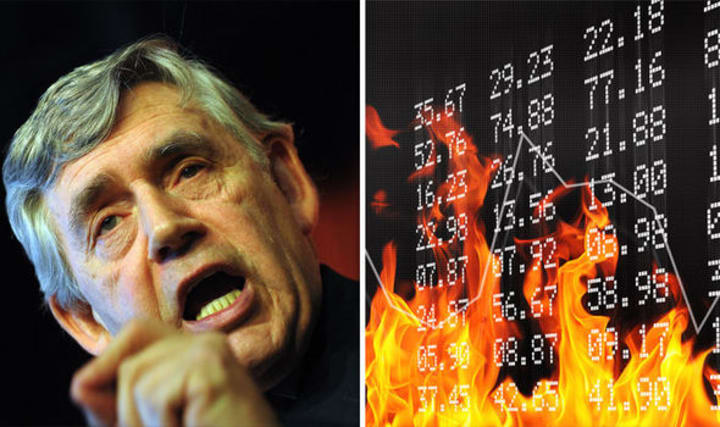Understanding Trickle-Down Economics
The theory of Trickle-Down Economics has many followers, as well as, critics. Let's have a look into the theory and let me express my opinion on why the implementation of this theory has created many issues and provided few if any, positive results.

Trickle-down economics is a common political debate, associated with supply-side economics. According to the premise behind trickle-down economics and its practices, tax cuts/breaks and benefits for corporations and the wealthy will trickle down and eventually benefit everyone. Meaning everyone from the so-called wealthy 1% to the lowest class. In the generalization of the lowest cast, I believe, lays the biggest mistake of this theory. When a theory, such as trickle-down economics says that everyone benefits from tax breaks and benefits that are directly created for the profit of the wealthy corporations and their shareholders, with the premise that this influx of capital will eventually benefit all the classes of society in the sense that capital moves in every aspect. Either by creating jobs or providing investment in infrastructures.
A policy is deemed "trickle-down" if it disproportionately helps affluent corporations and individuals even though is designed to boost standards of living for all individuals in the long run. The adoption of income tax reductions by President Ronald Reagan and President Herbert Hoover during the Great Depression was referred to as "trickle-down" policy.
CRITICISM TOWARDS TRICKLE DOWN ECONOMICS
Well, the first and easiest criticism of this theory is that corporations and the wealthy, do not always take initiative into moving their capital, especially in times of risk. Many corporations, as well as, stake-holders, sometimes implement solidity to such an extent, to create financial crises themselves, by withholding their capital, and creating a self-created stagnation for whole countries, as well as, the global economy.

The most known example, of this observation, is the Global Financial Crisis of 2008. Which made leading global investment banks, like Goldman Sachs, raise the interests of loans, even for those intended for countries, creating an enormous rise of dept, following the rise of loaning interests for some countries.

Although proponents of the trickle-down theory contend that increasing the amount of money held by the affluent and companies encourages consumption and free-market capitalism, this can only be achieved with the help of the government.
I think, critics are mentioning rightly that the additional benefits the rich receive might skew the economic system because they prevent lower-income taxpayers from receiving an equivalent tax break, which increases income inequality. Many economists disagree, arguing that lowering taxes for the poor and working families stimulates the economy by raising consumer spending on goods and services, as opposed to tax breaks for corporations, which may fund stock buybacks or higher savings rates for the rich. Although proponents of the trickle-down theory contend that increasing the amount of money held by the affluent and companies encourages consumption and free-market capitalism, this can only be achieved with the help of the government.
Growth is influenced by a variety of variables, including interest rate reductions and Federal Reserve monetary policies. The economy is boosted by trade, exports, sales made by American businesses to international businesses, and foreign direct investment from enterprises and investors abroad.
A London School of Economics report by David Hope and Julian Limberg, which looked at five decades of tax cuts in 18 wealthy countries, was published in December 2020. It found that while the tax cuts consistently benefited the wealthy, they had no appreciable impact on unemployment or economic growth.
Trickle-Down Economics Today

Republican policy is still influenced by trickle-down economics. The Tea Party movement advocated for lower taxes and government expenditure in 2010. Congress responded by extending Bush's tax cuts, even for those earning $250,000. President Trump signed the Tax Cuts and Jobs Act in late 2017. (TCJA). This reduced the corporation tax rate from 35% to 21% beginning in 2018. The highest individual tax rate also decreased to 37%. The TCJA reduced income tax rates, did away with personal exemptions, and increased the standard deduction by two times. The corporation tax reductions are permanent, whereas the individual improvements are only in effect through the end of 2025.
While, this theory, plays an important role in domestic politics of countries, in Europe and South America, with the examples of United Kingdom in Europe and Chile in South America.
A lot of times, these types of policies have done damage to the economy of the United States more times than they have helped it. Disastrous results have taken place at both state and federal levels. With GDP per capita and unemployment rates were nearly identical after five years in countries that decreased wealth taxes and those that didn’t.
However, they also found that the incomes of the rich grew much faster in countries where tax rates were lowered. Instead of trickling down the rich just got richer.

Conclusion
In my opinion, In years with lower top tax rates, and years of trickle-down economics, we see a small increase in the number of jobs generated in such countries as USA, but in practice, is a fruitless attempt that won't result in any financial growth, and especially not an equal one, the only growth that exists is the one of the deficit between social classes, between rich and poor.
About the Creator
Sergios Saropoulos
Philosopher, Journalist, Writer.
Found myself in the words of C.P. Cavafy
"And if you find her poor, Ithaka won’t have fooled you.
Wise as you will have become, so full of experience, you’ll have understood by then what these Ithakas mean"






Comments
There are no comments for this story
Be the first to respond and start the conversation.